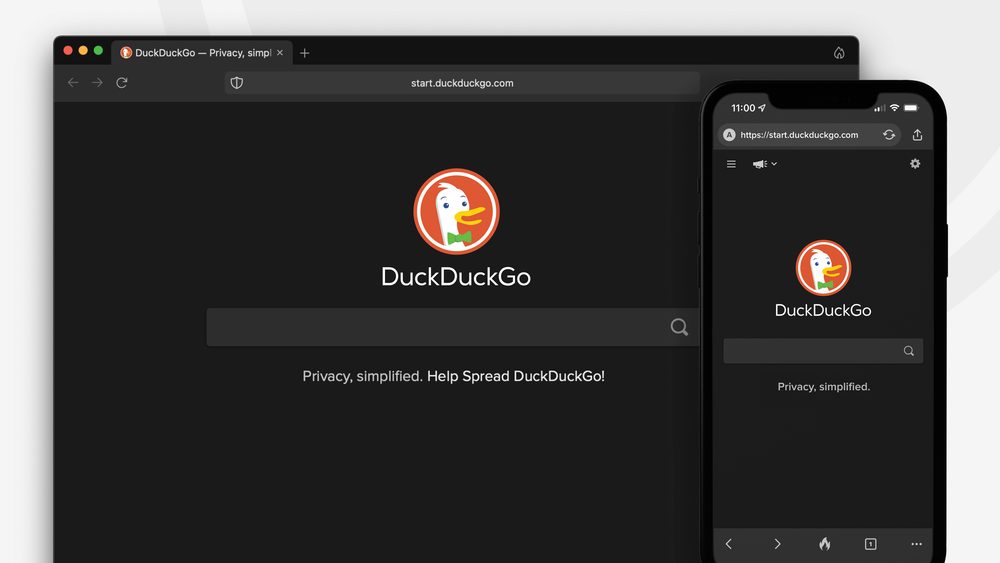
DuckDuckGo Privacy Browser Doesn’t Block Microsoft Trackers as Part of Deal

Image: DuckDuckGo
According to security researcher Zach Edwards’ recent security audit of the DuckDuckGo Privacy Browser for iOS and Android, the browser allows Microsoft trackers on third-party websites while blocking all others (via BleepingComputer).
On Facebook parent Meta‘s workplace.com, Edwards discovered that the DuckDuckGo Privacy Browser allowed trackers related to the bing.com and linkedin.com domains while blocking all others, including trackers from Facebook and Google.
You can capture data within the DuckDuckGo so-called private browser on a website like Facebook's https://t.co/u8W44qvsqF and you'll see that DDG does NOT stop data flows to Microsoft's Linkedin domains or their Bing advertising domains.
iOS + Android proof:
👀🫥😮💨🤡⛈️⚖️💸💸💸 pic.twitter.com/u3Q30KIs7e— ℨ𝔞𝔠𝔥 𝔈𝔡𝔴𝔞𝔯𝔡𝔰 (@thezedwards) May 23, 2022
Trackers are commonly used by advertising services to create user profiles for each individual in order to serve interest-based and highly targeted advertisements to them. The DuckDuckGo search engine also blocks trackers and instead uses contextual advertisements from partners, like Ads by Microsoft.
DuckDuckGo itself does not collect any personal identifiers, but Microsoft advertising may record a user’s IP address and other information when they click on an ad. The collected information is used for “accounting purposes” and is not associated with a user advertising profile.
Even so, the fact that the DuckDuckGo browser allows any trackers at all conflicts with the ethos of the privacy-centric company, which last week said “tracking is tracking, no matter what you call it,” as it lambasted Google for its new tracking and ad-retargeting methods in a tweet.
NEW: DuckDuckGo's Chrome extension now blocks Google's new tracking method "Topics" and new ad re-targeting method FLEDGE.
Google says they're better for privacy, but the simple fact is tracking is tracking, no matter what you call it.https://t.co/r9GFLdXmTT
— DuckDuckGo (@DuckDuckGo) May 11, 2022
Following the discovery, DuckDuckGo CEO and Founder Gabriel Weinberg confirmed that their browser deliberately allows Microsoft trackers on third-party websites due to a requirement in the company’s search syndication agreement with Redmond, Washington-based Microsoft.
“However, we have been continually pushing and expect to be doing more soon,” Weinberg said in a tweet.
For non-search tracker blocking (eg in our browser), we block most third-party trackers. Unfortunately our Microsoft search syndication agreement prevents us from doing more to Microsoft-owned properties. However, we have been continually pushing and expect to be doing more soon.
— Gabriel Weinberg (@yegg) May 23, 2022
The DuckDuckGo CEO also clarified that this limitation exists only in their browser and does not extend to the DuckDuckGo search engine.
While DuckDuckGo has been transparent about its advertisement partnership with Microsoft since the very beginning, the fact that the company’s browser allows trackers from the latter’s services has never been disclosed.
Responding to BleepingComputer‘s coverage of Edwards’ findings, Weinberg said the company is working to remove this restriction from their agreement with Microsoft.
“In addition, we are working with Microsoft to remove this limited restriction the article refers to. We’re also working on updates to our app store descriptions to have more information,” the DuckDuckGo CEO said in a tweet.
DuckDuckGo is also working on bringing its privacy-focused browser to the desktop. The company released a beta version of its desktop browser for macOS last month.

